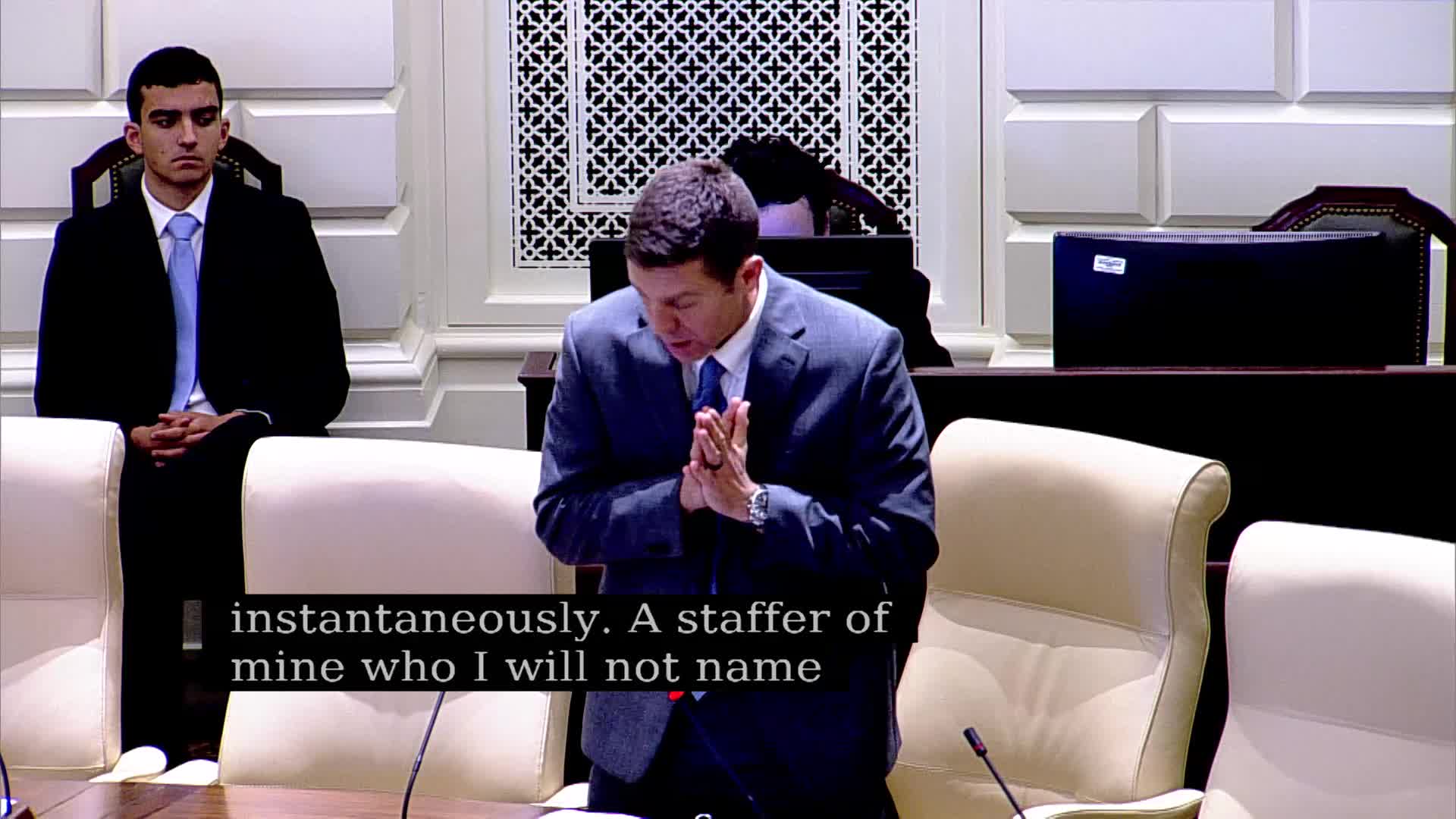Massachusetts Committee Seeks Smartphone Ban to Improve Student Focus and Mental Health
July 31, 2025 | 2025 Legislature MA, Massachusetts
This article was created by AI summarizing key points discussed. AI makes mistakes, so for full details and context, please refer to the video of the full meeting. Please report any errors so we can fix them. Report an error »

In a recent Massachusetts Senate session, lawmakers engaged in a passionate discussion about the growing concern over smartphone use in schools. The meeting highlighted the detrimental effects of cell phone access on students' academic performance and mental health, prompting a proposed bill aimed at restricting phone use during school hours.
The conversation was sparked by a middle school student's emotional reaction to the idea of being without his phone in class, which resonated with many educators and legislators. The chair of the committee on mental health, who has spent considerable time in schools, emphasized that students often do not realize how their phones contribute to issues like poor sleep, lack of physical activity, and distractions during lessons. He argued that the current environment allows Silicon Valley to dictate classroom dynamics, undermining the educational efforts made in Massachusetts, a state known for its strong educational system.
Statistics presented during the session revealed alarming trends: students are reportedly spending an average of 1.5 hours on their phones during school, which equates to missing about 25% of their educational time. This distraction has coincided with significant declines in academic performance, particularly in reading and math scores, which have dropped since smartphones became prevalent in schools. The senator pointed to a correlation between the rise of smartphone access and a decline in student engagement and performance, suggesting that the issue has evolved from a mere correlation to a clear causation.
The proposed legislation aims to create phone-free environments in schools, a move supported by a growing number of states across the country. Evidence from schools that have implemented similar bans indicates improvements in academic performance and student behavior. For instance, a survey of 900 schools showed that 65% reported better academic outcomes and 83% noted increased class engagement after instituting strict phone policies.
Additionally, the discussion touched on the broader implications of smartphone use on social development. Educators noted that students often interact less with their peers, leading to a decline in essential social skills. The mental health crisis among youth, exacerbated by social media and constant connectivity, was also a focal point. The senator shared personal anecdotes and statistics indicating a sharp rise in anxiety and depression among teens, correlating with increased smartphone access.
As the session concluded, there was a clear consensus among lawmakers about the need for action. The proposed bill aims not only to enhance academic performance but also to address the mental health challenges faced by students in an increasingly digital world. The anticipated next steps include further discussions and potential amendments to ensure the bill effectively supports educators and students alike in creating a healthier learning environment.
The conversation was sparked by a middle school student's emotional reaction to the idea of being without his phone in class, which resonated with many educators and legislators. The chair of the committee on mental health, who has spent considerable time in schools, emphasized that students often do not realize how their phones contribute to issues like poor sleep, lack of physical activity, and distractions during lessons. He argued that the current environment allows Silicon Valley to dictate classroom dynamics, undermining the educational efforts made in Massachusetts, a state known for its strong educational system.
Statistics presented during the session revealed alarming trends: students are reportedly spending an average of 1.5 hours on their phones during school, which equates to missing about 25% of their educational time. This distraction has coincided with significant declines in academic performance, particularly in reading and math scores, which have dropped since smartphones became prevalent in schools. The senator pointed to a correlation between the rise of smartphone access and a decline in student engagement and performance, suggesting that the issue has evolved from a mere correlation to a clear causation.
The proposed legislation aims to create phone-free environments in schools, a move supported by a growing number of states across the country. Evidence from schools that have implemented similar bans indicates improvements in academic performance and student behavior. For instance, a survey of 900 schools showed that 65% reported better academic outcomes and 83% noted increased class engagement after instituting strict phone policies.
Additionally, the discussion touched on the broader implications of smartphone use on social development. Educators noted that students often interact less with their peers, leading to a decline in essential social skills. The mental health crisis among youth, exacerbated by social media and constant connectivity, was also a focal point. The senator shared personal anecdotes and statistics indicating a sharp rise in anxiety and depression among teens, correlating with increased smartphone access.
As the session concluded, there was a clear consensus among lawmakers about the need for action. The proposed bill aims not only to enhance academic performance but also to address the mental health challenges faced by students in an increasingly digital world. The anticipated next steps include further discussions and potential amendments to ensure the bill effectively supports educators and students alike in creating a healthier learning environment.
View full meeting
This article is based on a recent meeting—watch the full video and explore the complete transcript for deeper insights into the discussion.
View full meeting
